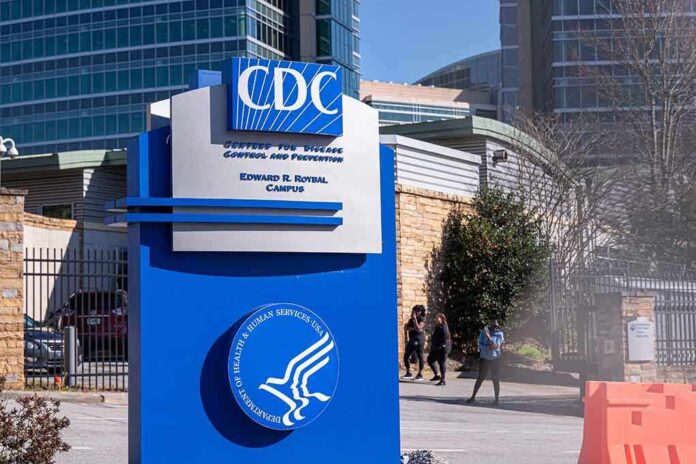Kennedy’s bombshell overhaul of the CDC’s vaccine advisory panel has ignited fears of an anti-vaccine agenda that could dismantle decades of established public health protocols.
Key Takeaways
- Robert F. Kennedy Jr. has removed all members of the CDC’s Advisory Committee on Immunization Practices (ACIP), claiming the need to restore public trust in vaccine policy.
- The new eight-member panel includes controversial figures who gained prominence during COVID-19 by challenging mainstream vaccine policies and government health measures.
- Critics argue the appointees lack strong current expertise in vaccines and may undermine established vaccine recommendations.
- Proponents view the change as necessary to address alleged conflicts of interest and to ensure more rigorous safety and efficacy standards.
- The next ACIP meeting is scheduled for June 25-27, but the committee currently lacks a quorum to function properly.
Complete Overhaul of CDC Vaccine Advisory Panel
In a decisive move that has shaken the public health establishment, Health and Human Services Secretary Robert F. Kennedy Jr. has removed all members of the Advisory Committee on Immunization Practices (ACIP), a critical CDC panel responsible for setting vaccine policy in the United States. Kennedy’s action represents a complete reset of the committee that has traditionally guided American vaccination recommendations and schedules. The dramatic purge of this influential panel has ignited intense debate among health professionals, policymakers, and concerned citizens about the future direction of vaccine policy under the Trump administration.
Kennedy defended his decision by citing what he described as conflicts of interest among previous panel members and questionable last-minute appointments made by the Biden administration. “HHS will put the restoration of public trust above any pro- or antivaccine agenda,” said Robert F. Kennedy Jr., Secretary of Health and Human Services.
On Monday, Health and Human Services Secretary Robert F. Kennedy Jr. made a bold move by dismissing the entire vaccine advisory panel at the Centers for Disease Control and Prevention (CDC), citing a need to restore public trust in the institution.
The Advisory Committee on… pic.twitter.com/arz9vu35t4
— Camus (@newstart_2024) June 11, 2025
Controversial New Appointees Raise Concerns
The eight new appointees selected by Kennedy include individuals who have been vocal critics of government health policies during the COVID-19 pandemic. Dr. Robert Malone, known for his early work on mRNA technology, has been an outspoken critic of mRNA COVID vaccines. Martin Kulldorff, co-author of the Great Barrington Declaration, challenged lockdowns and other public health measures. Dr. Retsef Levi has called for stopping COVID mRNA vaccination programs, citing alleged harms. Vicky Pebsworth is associated with the National Vaccine Information Center, an organization that has warned against vaccine risks, and Dr. Cody Meissner previously served on the ACIP but has criticized masking children.
“All of these individuals are committed to evidence-based medicine, gold-standard science, and common sense. They have each committed to demanding definitive safety and efficacy data before making any new vaccine recommendations,” said Secretary RFK Jr.
Public health advocates have expressed serious concerns about the qualifications and perspectives of these new appointees. Critics worry that the reconstituted panel may be predisposed to question or reject established vaccine guidelines rather than follow the rigorous scientific processes that have previously governed ACIP’s recommendations. The panel’s decisions influence which vaccines are recommended for Americans of all ages and impact insurance coverage requirements for immunizations.
Political Reactions and Public Health Implications
The sweeping change has prompted responses from key political figures, including Senate Health Committee Chair Bill Cassidy, who has expressed cautious concern while maintaining open communication with Kennedy. “Of course, now the fear is that the ACIP will be filled up with people who know nothing about vaccines except suspicion. I’ve just spoken with Secretary Kennedy, and I’ll continue to talk with him to ensure this is not the case,” said Bill Cassidy.
“Kennedy did not pick people with strong, current expertise in vaccines. It tells me that Kennedy is setting up a committee that would be skeptical of vaccines, and possibly willing to implement an anti-vaccine agenda,” said Dorit Reiss, vaccine law expert at the University of California, Law, San Francisco.
Meanwhile, supporters of Kennedy’s decision view it as a victory for medical freedom and transparency. “This is a huge win for the medical freedom movement; they did everything by the book to put together this excellent slate of appointees,” stated David Mansdoerfer, who worked on the Presidential Transition Team. This division of opinion highlights the growing politicization of public health measures that were once largely bipartisan consensus issues. The coming months will be critical in determining whether this overhaul will lead to more robust vaccine safety standards or undermine decades of progress in preventing infectious diseases through vaccination.
Immediate Challenges for Vaccine Policy
The next scheduled ACIP meeting on June 25-27 faces significant hurdles as the committee currently lacks a quorum. This administrative challenge may require temporary authorization for ex-officio members to vote, creating additional uncertainty in the process. The timing is particularly problematic as recommendations for seasonal vaccines, including influenza and updated COVID-19 formulations, typically occur during summer meetings. The disruption comes at a time when vaccine hesitancy has already increased across the country, and public health officials worry that further politicization of vaccine recommendations could exacerbate declining immunization rates.
For Americans concerned about vaccine policies, the coming months will reveal whether Kennedy’s promise to prioritize “evidence-based medicine” will translate into strengthened safety protocols or create barriers to widely accepted preventive health measures. The ultimate impact of this controversial decision will depend on how the new committee balances scientific evidence with the varying perspectives its members bring to the critical task of guiding national vaccination policy.











